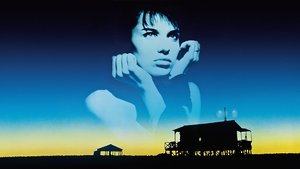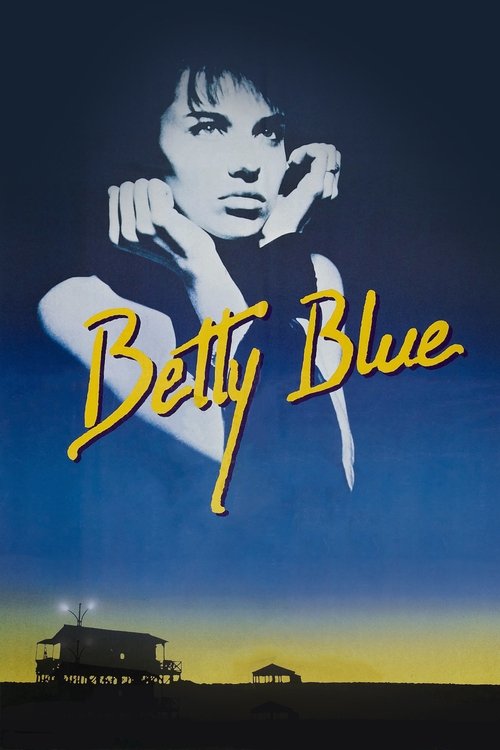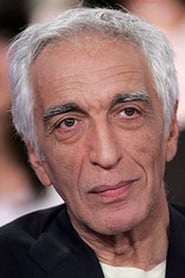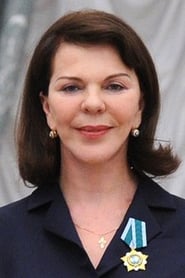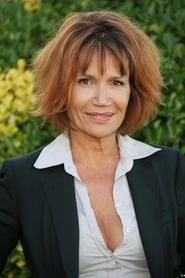Cast
View AllJean-Hugues Anglade
as Zorg
Béatrice Dalle
as Betty
Gérard Darmon
as Eddy
Consuelo De Haviland
as Lisa
Clémentine Célarié
as Annie
Jacques Mathou
as Bob
Vincent Lindon
as Richard, the Young Policeman
Catherine D'At
as Pizzeria Customer
Claude Aufaure
as Doctor
Louis Bellanti
as Mario
Dominique Besnehard
as Pizzeria Customer
Raoul Billerey
as The Old Policeman
Nathalie Dalyan
as Maria
Nicolas Jalowyj
as Little Nicolas
André Julien
as Old Georges
Crew
Director
- Jean-Jacques Beineix
Producer
- Jean-Jacques Beineix
Reviews
CinemaSerf
"Betty" (Béatrice Dalle) and "Zorg" (Jean-Hugues Anglade) live a happy-go-lucky life au bord de la mer. Their utopian existence is thrown into chaos by her relationship with his demanding boss who needs all of their bungalows painted in return for the rent to be waived. She then proceeds to throw one of the best strops in cinema before they head off to stay with one of her friends whose boyfriend has just inherited a piano store and that's where our loveable duo end up. They still have their heads in the clouds and when they are not walking around naked, or having sex, or drinking wine - he is supposed to be writing a book. Ha! Fat chance - especially as we almost imperceptibly, at first, begin to realise that "Betty" is becoming unwell. Her grasp of things isn't what it was and her character changes into something poor old "Zorg" struggles to reconcile with - despite his undying love for her. We are seeing things from both perspectives here and that's where the film comes alive. Their respective rationales become ambiguous, their behaviour more erratic - indeed their whole way of life that has been so successfully unstructured thus far might now be the very thing that's making things difficult, maybe even impossible, as the denouement threatens tragedy. There's a great deal of nudity but after about five minutes that is, as so often happens in European cinema, subsumed into a story that is characterful and strong. It does suggest love, lust and joy, but latterly it begins to suggest something else - a vulnerability. It's a bit on the long side but by half an hour in, Dalle has managed to hook the audience and maybe because of them or maybe despite them, I felt that I wanted something good for them. Happiness, contentment, love - all things that prove tantalisingly out of their reach. Can they attain something fulfilling? It mixes the light and fluffy with the intriguing and occasionally quite thought-provoking, and shows us both sides of a coin of helplessness that's quite poignant at times to watch.
Aug 21, 2024
Thematic Analysis
As a dramatic work, Betty Blue examines complex human relationships and emotional struggles against the backdrop of a period setting that reflects societal issues of its time. The character development particularly stands out, offering viewers a chance to reflect on their own life journeys.
Director Jean-Jacques Beineix brings their distinctive visual style to this film, continuing their exploration of themes seen in their previous works while adding new elements. Their approach to character development and emotional depth creates a viewing experience that rewards close attention.
Released in 1986, the film exists within a cultural context that now offers viewers historical perspective on the social issues of that era. Its critical acclaim reflects its artistic achievements and its place in cinema history.
Did You Know?
- The production of Betty Blue took approximately 22 months from pre-production to final cut.
- The final cut of the film runs for 120 minutes, though the director's initial assembly was reportedly 167 minutes long.
- The costume department created over 163 unique costume pieces for the production.
- Some visual effects sequences took up to 12 months to complete.
- The cast underwent specialized training for 5 weeks before filming began.
Historical Context
- In 1986, when this film was released:
- MTV launched, changing how music was marketed and consumed.
- Economic policies were shifting toward deregulation in many Western countries.
- Independent cinema was growing in influence, challenging the dominance of major studios.
How This Film Stands Out
While Betty Blue shares thematic elements with other films in its genre, it distinguishes itself through its unique approach to storytelling, visual style, and character development.
Unlike Twin Peaks: Fire Walk with Me, which takes a more conventional approach to its subject matter, Betty Blue offers a fresh perspective through its innovative visual language and narrative structure.
While films like The Princess Bride and Gucha! explore similar territory, Betty Blue stands apart through its deeper exploration of its central themes and more complex characterization.
This film's unique contribution to cinema lies in its bold artistic choices and willingness to challenge viewer expectations, making it a valuable addition to its genre.
Details
- Release Date: April 9, 1986
- Runtime: 2h
- Revenue: $2,003,822
Where to Watch


